- Home
- catt dahman
Shadow Of Doubt: Z Is For Zombie Book 3
Shadow Of Doubt: Z Is For Zombie Book 3 Read online
SHADOW OF A DOUBT
Z is for Zombie:Book 3
catt dahman
1
Photographs
It is has been said that the Khan Kublai was a friend of the explorer Marco Polo, not because Polo just described things he saw, but because he described the very mood and personality of what he saw: the flavor. Khan could find many who would tell him who did what and why and even how, but for an idea of the actual emotions and feelings involved in the vast khanate, Polo was sent.
Looking at a photograph, we might guess relationships, economics, some of the mood, and the action, but can we ever know what the person was thinking at just that second the photo was taken?
So if we use pictures to see what the last stand of some brave people looked like after the fact, do we have any idea as to what they were thinking when the action actually took place? Sometimes we can guess if we take the time to look for minute details.
In the first photograph, the parking lot is for those coming into the hospital through the pharmacy. Beside of that parking lot is another parking lot for the hotel next door. Both buildings are crumbled, but the hospital has fallen in to the extent that above what was the third floor is twisted metal, rubble, and a mess of wallboards. Hospital beds and equipment dot the trash and wink in the sunlight.
The detail here worth noting is that if one looks very closely in the middle, he will see a bare finger bone, a testament that not only was this an event that took many lives, but also the bodies were never recovered, and therein lies the message.
The parking lot does contain cars and trucks of every type imaginable: their tires melted against the pavement, paint scorched and burned away, and window glass glittered on the ground. Some of the vehicles have been here for several months, their owners dead some time ago, and some are new to the parking lot, but just as abandoned and lonely.
What stands out the most isn’t the fire damage that was caused by a grenade tossed into a truck bed full of five-gallon gasoline cans, but is the smell of burned human flesh, like roasted pork.
Hundreds of bodies are everywhere, and if anyone bothered to count, five hundred and fifty-seven, give or take a few parts, are lying there.
While this is horrific, it pales to the fact that, despite being burned to char and fused to the parking lot’s pavement, a few of those sad bodies still twitch and moan as some try to dislodge themselves and walk again. They moan as if they still have vocal cords although some just hiss, and in response, a few, who came along after the fact, are fresher and can answer. Those, caught at the edge of the blast and fire, are burned, some are naked, and some have no hair; they shamble along without emotion or pain receptors.
Most are mere ash now or finally are really dead, their brains having been cooked in their skulls.
That’s the only way to keep them down: destroy the brain or the brain stem, and make the virus and prion disease unable to sustain itself.
In a few places are discarded guns parts; only the metal is left. It’s clear there must have been a battle. The photo wouldn’t show how bitterly the battle was fought nor show a few terrified people against a wall of oncoming monsters that wanted to feed on flesh.No clue is shown that there were sacrifices, bravery, fear, and dejection.
The stairs into the hospital are on the other side of the thick metal doors that stand open and then past the remains of a pharmacy where everything inside is melted into puddles of plastic.
The fireball raced along hallways and burned for days, so what is left is a huge basement system that once held a cafeteria full of food, supplies, bedding, a make shift surgery unit, and people. But it is empty now, burned out and will never be useful again.
This place is interesting for what it once represented: safety.
When the bombs fell and the hospital collapsed, this maze of tunnels was a refuge for over a hundred people, who gathered, not only to survive, but also to work on rebuilding. It was a place where people made friends, took lovers, fought one another, helped the injured, and found some sort of life.
But that was before. Or it was after, depending on how you looked at it.
If you so wanted, you could tunnel into the hotel next door from the hospital, climb through rubble and into stairwells, or dig through the front doors of the hotel itself, but you would find only another battlefield.
This place, long since abandoned, was the sight of fierce fights between the survivors and creatures from nightmares. It was where a bar once sat; a few small used candles and shot glasses were left behind, patrons long gone.
The remains of a couple, gunshots to their heads, are in the storeroom; there they were infected and met their end together.
In the parking lot is an old truck, the sides blown out by the blast of the grenade and a subsequent explosion of gasoline.
You can’t see who was once in the truck; they are only memories and ghosts, now. Two guys, Hagan and Bryan, who fought hard and were forced to retreat to the truck cab, were the ones who tossed the grenade, going out on their own terms, deciding how and when they would die.
If you knew them, you’d know it wasn’t exactly a normal suicide, but was an act of heroes who had no chance at all; death wasn’t a way out, but a new horror.
You would know that they went out this way so they could take down as many creatures as possible in the parking lot.
Under the circumstances, you would know also that they acted in the best possible way to keep themselves from turning into the mindless creatures, to give their friends a stronger chance at survival, and to have some control over their own fates.
If you looked closely at one of the corpses farther away from the truck, you would understand quite a bit and nothing at all.
See the filth all over that corpse?It was called a Red Zed, meaning a few months back, he caught the airborne hemorrhagic Lyssa virus, nicknamed Red or Diamond Flux, which causes bleeding from every orifice, diarrhea, vomiting, fever, then a coma.
Oh, and then a return to some sort of consciousness caused rage and attacks on others. The virus caused them to bite, to feed on others, and finally, to spread the virus-prion nightmare through their saliva.
Look at him. He may have risen up to bite and feed on his own family or his caretakers, unable to stop himself or even to know what he was doing. He suffered in a humiliating way and then returned as something he would find aberrant.
Those bitten took on the same rage, same cannibalism, and same need to spread the disease. They were always hungry and yet always starving. Feast or famine, all the same.
If you look into the milky eyes, you can see the fury. He doesn’t know who he is now or have any of his former consciousness; for all arguments, he is really a walking dead or zombie or zed, whatever you wish to call him. He falls; one shot to his head finally ends his travels.
The friends of Hagan and Bryan, the ones who tossed the grenade, are over there. One of them took the shot. That’s Len, a former Marine, who retired but returned to a kind of duty to train people to fight back and to rebuild. He didn’t ask for this duty, and sometimes he wishes he could abandon it, but he keeps going. He’s a nice looking man, well built, and smart, but he’s also fuelled by fury at his own failures, and every loss shoves him closer to boiling over.
Happiness for Len is a brief chuckle at something clever, but he knows that for every person he cares about, there is a chance to watch that person become infected, and who, except for him, would be the one to put a bullet into his head? He no longer knows that his fear and his fury are the same thing.
He’s cursing as he looks at the parking lot. Julia, a very attractive Hispanic woman with her hair chopped off to the sca
lp so zeds can’t use it to grab her, is beside him.Her face is set in angry lines, and her busy mouth adds curses in Mexican.
She was once a teacher, but through a baptism of blood and rot, she has been honed into a machine for battle. She lost her parents to zombies; she has faced raiders, killed zombies, and seen more than anyone should ever have to witness. Sometimes, her sense of duty and humor are all that keep her clinging to humanity and what is right. Sometimes, the lines between right and wrong blur a little, and she must blink to see them.
George is here. He’s already guessed what happened after most of the survivors were evacuated when the zeds came across the parking lot in a chewing, saliva-dripping horde, and he understands even if no one else does.
He’s a retired cop, getting old now, but somehow is useful in the new world order, and for that, at least, he is thankful. He said long ago that each person would have his or her own terms for dying.
He watched a little girl lose her mother to the virus, and right then he stated his terms.
“It seems the virus is smarter than we are. It has taken out the human race, except for a few of us. We’re complaining now, but what about when the rest rise up and start coming after us?
It’ll come until we’re all gone if we let it.” George watched Katie crying in her mother’s arms. “What kind of vile makes a momma fearful of biting her baby girl? And she will, once she turns.”
“But it isn’t a thinking virus.”
“How do you know, Kim? What do we know? In my mind, it’s an evil, selfish son of a bitch. I wish it were a man I could fight and tear to pieces. I tell you this: I will be damned if that evil thing makes me turn on friends and help it re-produce; I won’t be a part of that.”
“Me neither,” Beth whispered, ”Jesus, help us.”
“When I know how things are going, I’m gonna go out on my own terms. I refuse to let the cock-knocker win. I’ll go out on George’s Terms.” He used a finger to point at his own chest.
“But she’s alive,” Kim complained. He sounded less sure.
“But we know she’s going to turn; no, don’t shake your head at me; we know. It’s her choice, and she has made it. George’s terms are that she gets to decide. I’d support you the same. It’s what is right. It’s what makes us human.”
Kim looked miserable and said, “But I hate it.”
“So do I, Son; I hate the virus. If anyone made it in a lab, I hope he burns in hell. I hate the scientist, too. I hate having to have my own terms or stand by that poor woman in this. I hate a lot. But that hate will ruin us if we let it.
I suggest we do like in a war; we don’t hate; we do our job: stand by what is right, execute the enemy with extreme prejudice, and move on as best we can. We are Americans, Son, and we are gonna damned sure act like it.”
That was not the last time someone decided on his own terms. George knows it isn’t a perfect thing: the terms he has declared, but he knows it is right.
George is one of the three oldest people with the survivors, and at times, his body feels as if it can’t go another step.
Teeg is the fourth in the group, a black man who is sometimes funny, sometimes haunted, and sometimes just down right scared. He joined them after running for miles from the zombies, and in his dreams, he is still running.
He doesn’t realize how valued he is for his stability and dependability, and he doesn’t know how people look to him: to watch their backs in fights and for doing the right things. Of all of them, he is the one with tears in his eyes.
After a little while, the four go back to the Explorer, tired of shooting the zeds they have found who still move and moan.
They feel dejected because they don’t see any signs their friends are alive. They know some were lost in the battle in the parking lot, but nothing indicates Bryan, Hagan, Kimball, Andromeda, Earl, and Mark made it out alive.
On the other hand, George says the lack of any signs of their bodies doesn’t mean they are dead either, making them afraid their friends are infected andwalk around, drooling, moaning, and searching for human flesh to devour. The group looks around, dreading to see that.
Len is worried. He wonders what he will say to Kimball’s widow, Beth, and adopted daughter, Katie. He wonders what to tell Andie’s ward, Hannah. What can he say to the children? What will he say to Misty, who is only sixteen but is in love with the twenty-six-year-old Mark?
Why did he even take on leadership?
Julia wonders whom she can gut to avenge her fury.
Teeg leans against George and cries. George knows the man cries for more than his friends; he cries for what was.
This is the photograph we keep. Nothing is over; it has just begun.
2
Arkansas
While the air was warmer, the river was eternally, freezing cold and totally clear with the iciness, but Tory forced herself under the water again as she soaped her body and washed her hair over and over until it squeaked between her fingers. The cold made her hands feel numb and gave her a headache from clenching her jaw. All the soap in the world couldn’t wash away the zombie blood that she felt crawling over her clean skin.
It was quiet in the river: the rocks, some smooth and some sharp, were slippery. Here and there, limbs had fallen into the water. Another tree was overhanging the flow, and out where the water went deep and wide, a fish made a ripple on the glassy surface.
How many summers had Tory spent floating the river when the water levels were high: catching crawdads, collecting interesting rocks and pebbles, and splashing? The serenity, the song of insects, and the rushing water were relaxing.
Even this far from the city, she had to deal with the occasional Z wanting to make a meal and spread the prion, but it was a rarity to find one here, this far from town.
Tory might have sat in the icy water forever had she not felt herself going numb all over and had the branches, along the bank, not snapped.
She cursed herself for leaving her gun on the bank. Still, she could throw rocks with the best of them and had no doubts she could zing a Z in the head, kill it, or maybe knock it down, just long enough to reach her gun.
“Get out, and get dressed,” she was ordered. “I have already taken your gun so no funny stuff, hear?
She would give him something funny as soon as she could get close enough to land her foot into his crotch, but for now, she complied, standing naked, toweling off, and dressing as if she had plenty of time.
The man stepped out so she could see his face. “Walt Aronson?” Tory groaned, relieved and angry at the same time.
“You know her?” someone asked.
“He should since we’re cousins,” Tory said, “give me my gun, you idiot.”
Walt grinned, “I can’t believe you’re alive. Is Charles okay? And how’s your mom?”
“Dad is fine. We lost Mama.”
“Family? Go figure,” one of the other men muttered.
“That’s Lance and his brother, Matt, my boys. Guess they hoped to find an unattached, available female but not a cousin.” Walt laughed. He hugged Tory, glad to see his family.
“Come ‘ere. This is Gabe, but he don’t talk, ever. The boy is Zane, and he’s been through a bad time; raiders got his whole family. The woman is Ali and is with me; my wife died from Red.”
“Jesus,” Tory said, “sorry to hear that.”
“We hoped we might find all of you but didn’t dare to count on it, seeing that so many didn’t make it.”
Tory yanked her hair into a wet ponytail and motioned them to follow her. “Dad will be glad to see you all. It felt like everyone was gone.”
At the big cabin, Charles embraced his nephews and gladly welcomed the group’s joining them, showing them rooms and supplies.
“We have a few here with us, but we’ve got room for ya’ll and supplies put up; plus we can hunt for fresh meat.”
“Appreciate it.”
“What have you seen? Bad things out there?”
“He
ll. We came through Hot Springs; it was bad, as if people had flocked there like a bunch of damned birds.”It must have been because of the water.
“Wonder why they all headed there?
“Well, I guess there were a bunch of zeds, but the people must have put a bunch down. Survivors are gathering there, like you said, cause of the water, I’m sure.”
“Survivors, huh?”
“Not the kind I’d recommend, we didn’t see them all, not the main patch of them, but the stories we heard and the things we did see, weren’t too good.”
“What do you mean?”
“We stopped at a store to find food and water and heard something, and I went in to look,” Walt said.
He shared the story. No moaning, drooling zeds were there to deal with, a good thing, but they were still very cautious of any that might be hidden.
Inside the store were empty liquor bottles, dry beer cans and soda cans, dry plastic soda bottles, finished bags of chips, wrappers from candy and other sweet snacks, and empty gum packages, all of which lay on the floor as did empty cigarette cartons, jars and containers of dips and salsa. It was if someone had a party: based on junk food and empty containers.
To one side, a naked, young woman was cruelly tied to a pole with barbed wire around her wrists and ankles, her flesh torn open and matted with blood. It had been a hard, painful death for her. Walt felt a wave of pity for her and what she had suffered, even as his adrenaline soared with worry for his own safety.
She might have been very pretty with her long blonde hair and fair skin, but she now stared into space with dead eyes and a tortured look frozen on her face.
A second woman was the same: her throat slashed, blood pooled between her pale legs, and bloody handprints all over her skin.
She also had been young and pretty, and from the looks of her poor body, she had been quite a fighter before losing her battle. Her wrists and ankles were torn deep, maybe to the bone from her struggles to get away, and she had stab wounds on her hands. The slit beneath her neck was wide and long, and more than one slit was on her neck, so she had struggled until the end.

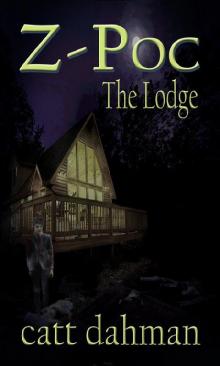 Z Poc: The Lodge
Z Poc: The Lodge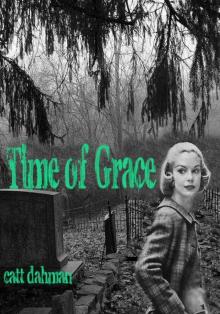 Time of Grace
Time of Grace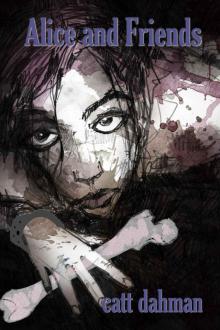 Alice and Friends
Alice and Friends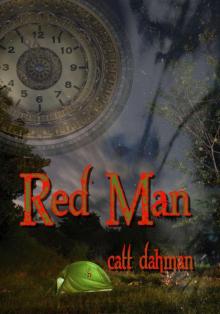 Red Man
Red Man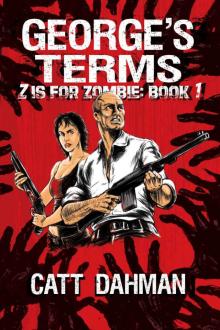 George's Terms: A Zombie Novel (Z Is For Zombie Book 1)
George's Terms: A Zombie Novel (Z Is For Zombie Book 1)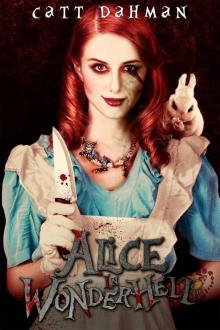 Alice In Wonderhell
Alice In Wonderhell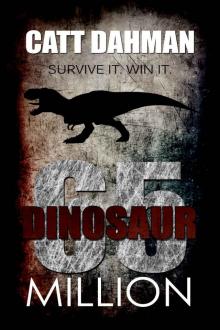 Dinosaur: 65 million
Dinosaur: 65 million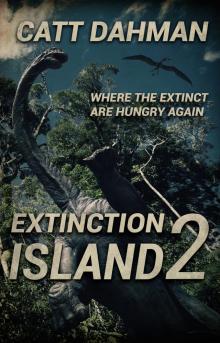 Extinction Island 2
Extinction Island 2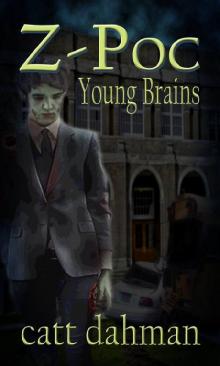 Z Poc: Young Brains
Z Poc: Young Brains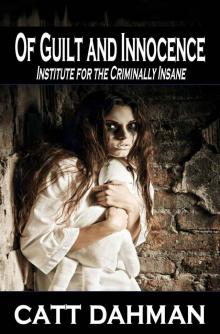 Of Guilt and Innocence: Institute at the Criminally Insane (Virgil McLendon Thrillers Book 3)
Of Guilt and Innocence: Institute at the Criminally Insane (Virgil McLendon Thrillers Book 3)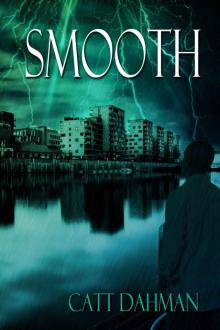 Smooth
Smooth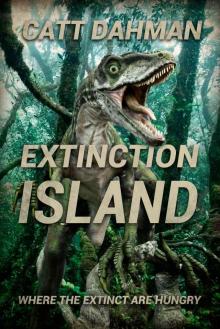 Extinction Island
Extinction Island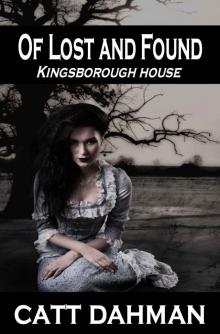 Of Lost and Found (the Kingsborough House): Kingsborough House (Virgil McLendon Thrillers Book 4)
Of Lost and Found (the Kingsborough House): Kingsborough House (Virgil McLendon Thrillers Book 4)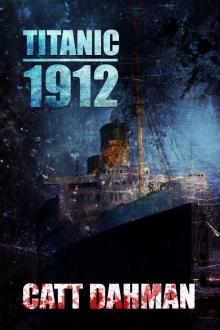 Titanic 1912: A Lovecraft Mythos Novel
Titanic 1912: A Lovecraft Mythos Novel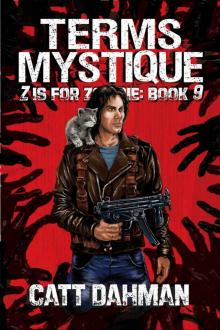 Terms Mystique: Z Is For Zombie 9
Terms Mystique: Z Is For Zombie 9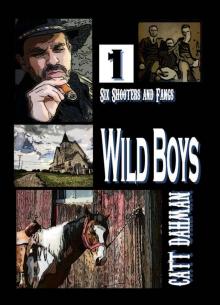 Wild Boys: Six Shooters and Fangs
Wild Boys: Six Shooters and Fangs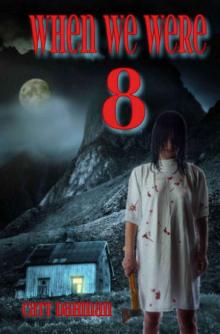 When We Were 8
When We Were 8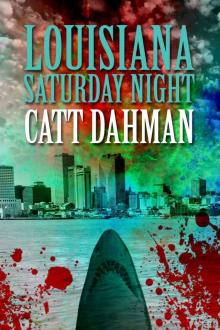 Louisiana Saturday Night
Louisiana Saturday Night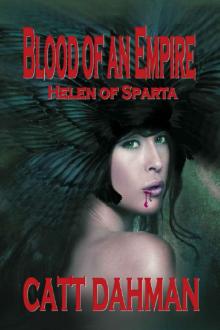 Blood of an Empire: Helen of Sparta
Blood of an Empire: Helen of Sparta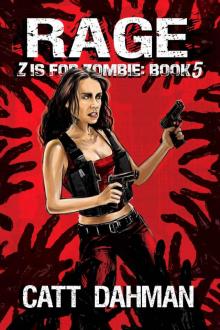 Rage: Z Is For Zombie Book 5
Rage: Z Is For Zombie Book 5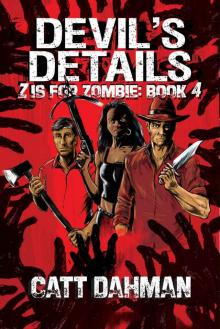 Devil's Details: Z Is For Zombie Book 4
Devil's Details: Z Is For Zombie Book 4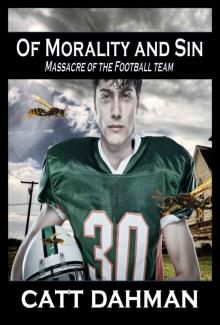 Of Morality and Sin: Massacre of the Football Team (Virgil McLendon Thrillers Book 7)
Of Morality and Sin: Massacre of the Football Team (Virgil McLendon Thrillers Book 7)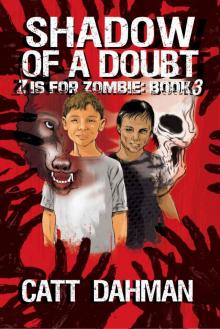 Shadow Of Doubt: Z Is For Zombie Book 3
Shadow Of Doubt: Z Is For Zombie Book 3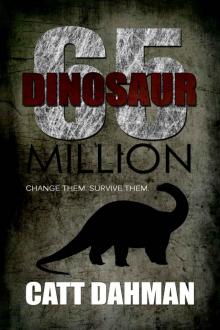 Dinosaur: 65 Million: Book 2 Change Them, Survive Them
Dinosaur: 65 Million: Book 2 Change Them, Survive Them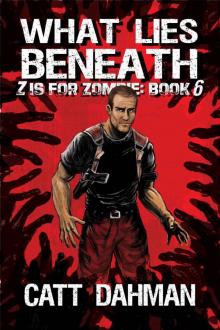 What Lies Beneath: Z is for Zombie Book 6
What Lies Beneath: Z is for Zombie Book 6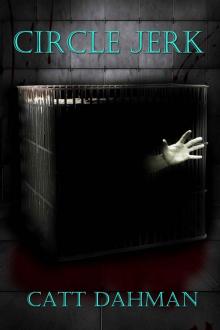 Circle Jerk
Circle Jerk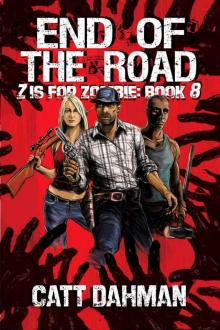 The End of the Road: Z is for Zombie Book 8 (Z is for Zombie: Book)
The End of the Road: Z is for Zombie Book 8 (Z is for Zombie: Book)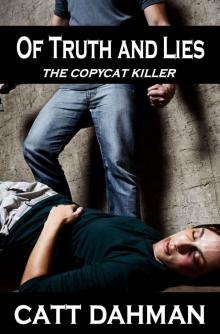 Of Truth and Lies: Hollingsworth Copycat Killer (Virgil McLendon Thrillers Book 5)
Of Truth and Lies: Hollingsworth Copycat Killer (Virgil McLendon Thrillers Book 5)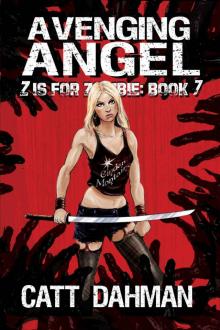 Avenging Angel: Z is for Zombie Book 7
Avenging Angel: Z is for Zombie Book 7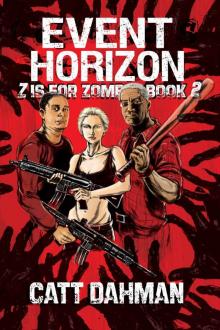 Event Horizon: Z Is For Zombie Book 2
Event Horizon: Z Is For Zombie Book 2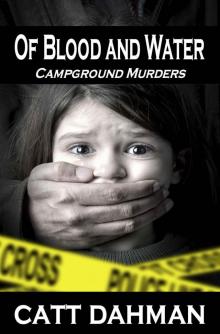 Of Blood and Water: Campground Murders (Virgil McLendon Thrillers Book 1)
Of Blood and Water: Campground Murders (Virgil McLendon Thrillers Book 1)